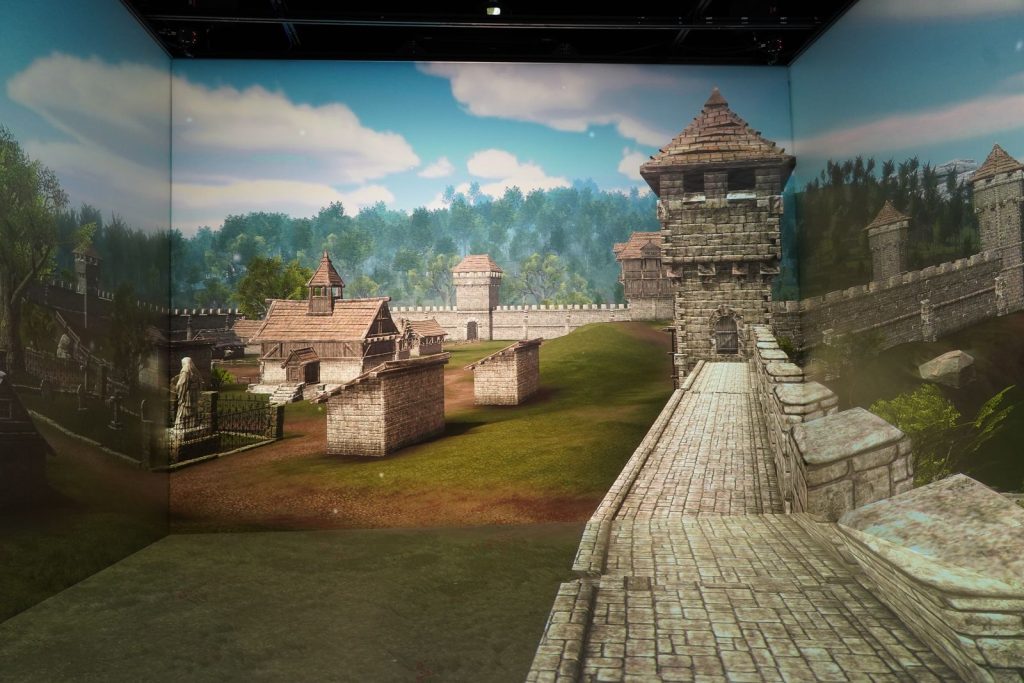Originally commissioned in 2000 as the first of its kind in the UK, the VR Lab has evolved through several technology generations. From its origins with CRT projectors and SGI image generators through lamp-based systems and multiple tracking solutions, it has been central to UCL’s standing as one of the country’s largest VR research groups. Today, the Lab remains a cornerstone for work across human–computer interaction, biomechanics, robotics, and virtual and augmented reality.
The latest upgrade replaces projectors first installed in 2012 with four Barco UDM 4K laser projectors. The system delivers brighter contrast, richer colour and a 4K pixel space per channel while removing the need for consumables and reducing maintenance demands. New RF-synchronised stereoscopic eyewear and fibre-optic cabling further enhance usability and reliability, ensuring the immersive room is equipped for years of future research.
“Our previous projection system had served us well for over a decade, but spare parts were becoming impossible to find, and performance had started to lag behind what is needed for cutting-edge research,” says Dr David Swapp, senior research fellow and lecturer in immersive technologies at UCL. “With the new setup, we get superior contrast, resolution and system reliability – all essential to pushing the boundaries of immersive VR. Primarily, we are interested in what makes virtual reality work; what it is that makes people go into the immersive room and not believe it is real, but still act and behave as if it is real. That is the question we continue to explore, and this upgrade helps us do it better.”
The room has already hosted studies ranging from foveated rendering and avatar interaction to AI-driven behaviour and multi-sensory simulation. While UCL’s research group makes extensive use of head-mounted displays for teaching and experimentation, projection-based systems remain the preferred resource for many use cases, offering a level of immersion and interactivity not possible with wearable devices. “We are proud to have supported UCL with this upgrade,” says John Mould, commercial development manager at Antycip. “It ensures one of the UK’s most iconic immersive facilities continues to evolve. Seeing the leap in image quality compared to its CRT origins really underlines how far this technology has come, and how much further it can go.”






